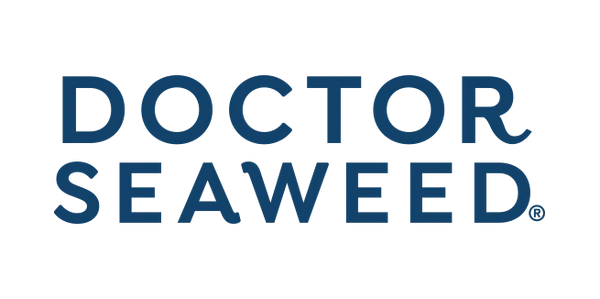World Health Day is celebrated every year on April 7th to mark the founding of the World Health Organisation (WHO). The theme this year is ‘Our Planet, Our Health’ – focussed on reimagining a world where economies are centred on health and well-being, and people have control over their health and the health of the planet.
Seaweed truly is a food of the future, providing huge benefits for both our planet and our health. Read on to find out how including sustainably sourced seaweed as part of your daily routine could reap benefits for both you and the planet.
Seaweed for our planet
Like any other plant life, seaweed takes in carbon dioxide and releases oxygen, making it a valuable asset for protecting the health of our planet. It’s rapid growth rate makes its ability to soak up carbon even better, with a seaweed forest able to absorb around 20 times more carbon from the atmosphere than the same area of forest on land[i].
Research has estimated that seaweed takes around 200 million tons of carbon dioxide from the atmosphere every year[ii] – this is about as much as the annual emissions of the state of New York! Another study found that farming seaweed from a small area on the Californian coast could offset the carbon emissions from the entire state’s farming industries[iii].
What’s more, seaweed harvesting doesn’t come with the same challenges as land farming – it grows abundantly without fertiliser, and it doesn’t require fresh water or land space.
Seaweed for our health
Not only does seaweed benefit the health of our planet, it can also provide huge health benefits for us too. Seaweed is around 50% fibre, and it also contains a huge variety of nutrients - most importantly providing essential nutrition from the sea in the form of iodine.
Many people haven’t heard of iodine, but don’t be fooled by its low profile! Iodine is essential for our health and has an important role in cognitive health and thyroid function. Not getting enough iodine in your diet can lead to an underactive thyroid, which can lead to all kinds of unwanted symptoms including weight gain, dry skin and tiredness[iv].
Despite the importance of iodine for our health, research shows that iodine deficiency rates in the UK are some of the worst, with an even higher rate than many developing countries[v]. These worrying statistics spread beyond the UK, with Europe also considered to be an iodine deficient continent[vi].
Seaweed for the future
The many benefits of seaweed are becoming increasingly recognised, with our very own Doctor Seaweed recently taking part in Ocean Greens, a short film funded by Quorn, exploring the environmental benefits of seaweed and the impact that it can have on the future of our food.
Despite seaweed providing the ability to offset carbon emissions, along with nutritional benefits that are non-comparable to those of land plants, the majority of people remain unaware of how to source a safe and sustainable supply of seaweed and how to include it within their diet.

Discover the wonder of seaweed
With over 10,000 different species of seaweed, it’s important to choose which species you include in your diet carefully in order to maximise on the advantages. Knotted kelp is a particularly good source of iodine, with just one gram providing as much iodine as three whole mackerel. This means that consuming even a small amount allows you to reap the rewards – a happy relief for a lot of people, given that seaweed is somewhat of an acquired taste. It is this species of seaweed that is sustainably harvested for use in Doctor Seaweed’s Weed & Wonderful® supplements.
The all-natural Weed & Wonderful® range of seaweed supplements are vegan friendly, organic and sustainably harvested from the pristine waters of the Scottish Outer Hebrides. Every batch is independently tested to ensure all aspects of safety, quality and nutrition. Doctor Seaweed’s Weed & Wonderful® capsules are the most convenient and effective way of including seaweed into your daily food intake, allowing you to do your bit for our planet and your health.
Click here to discover the full range.

